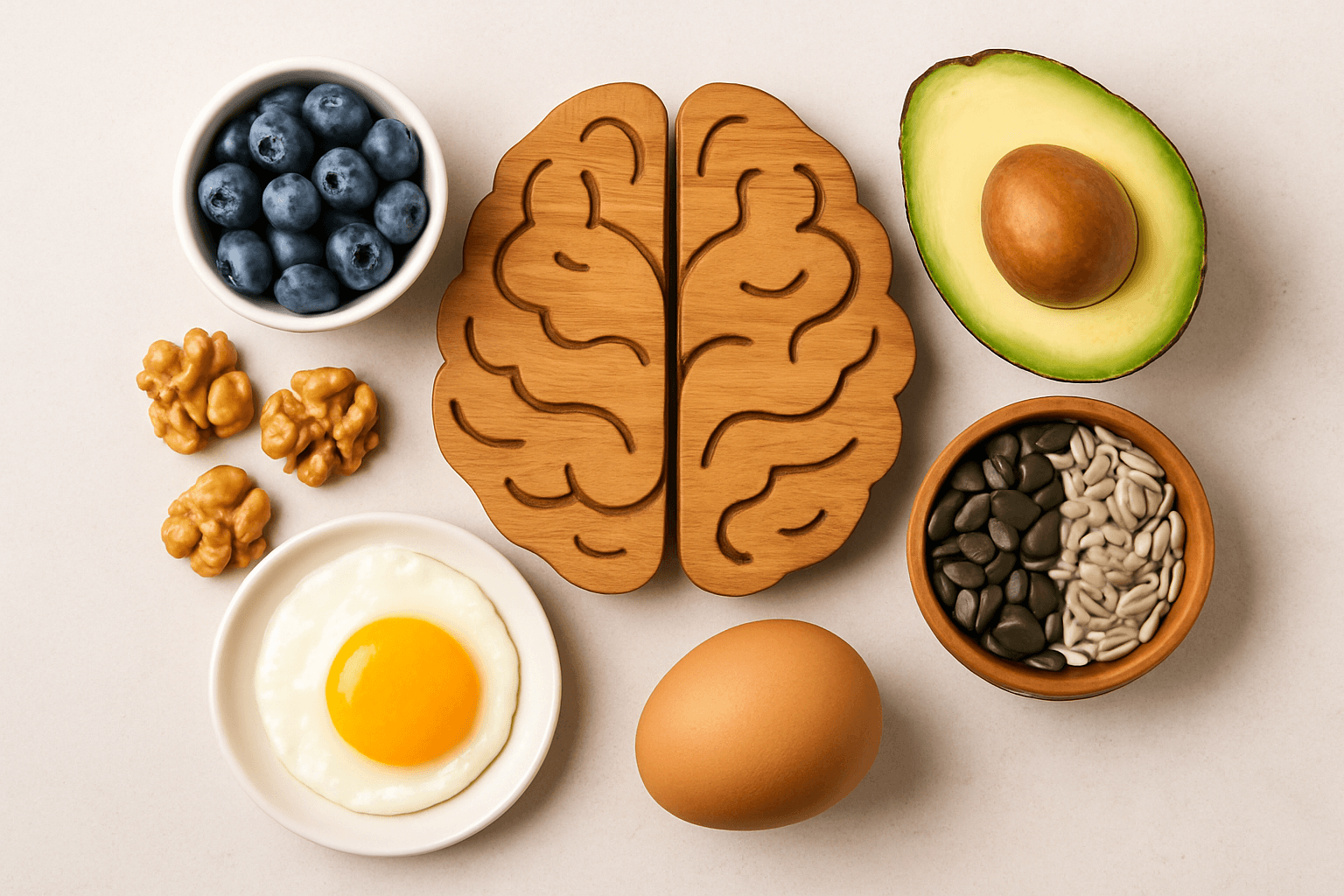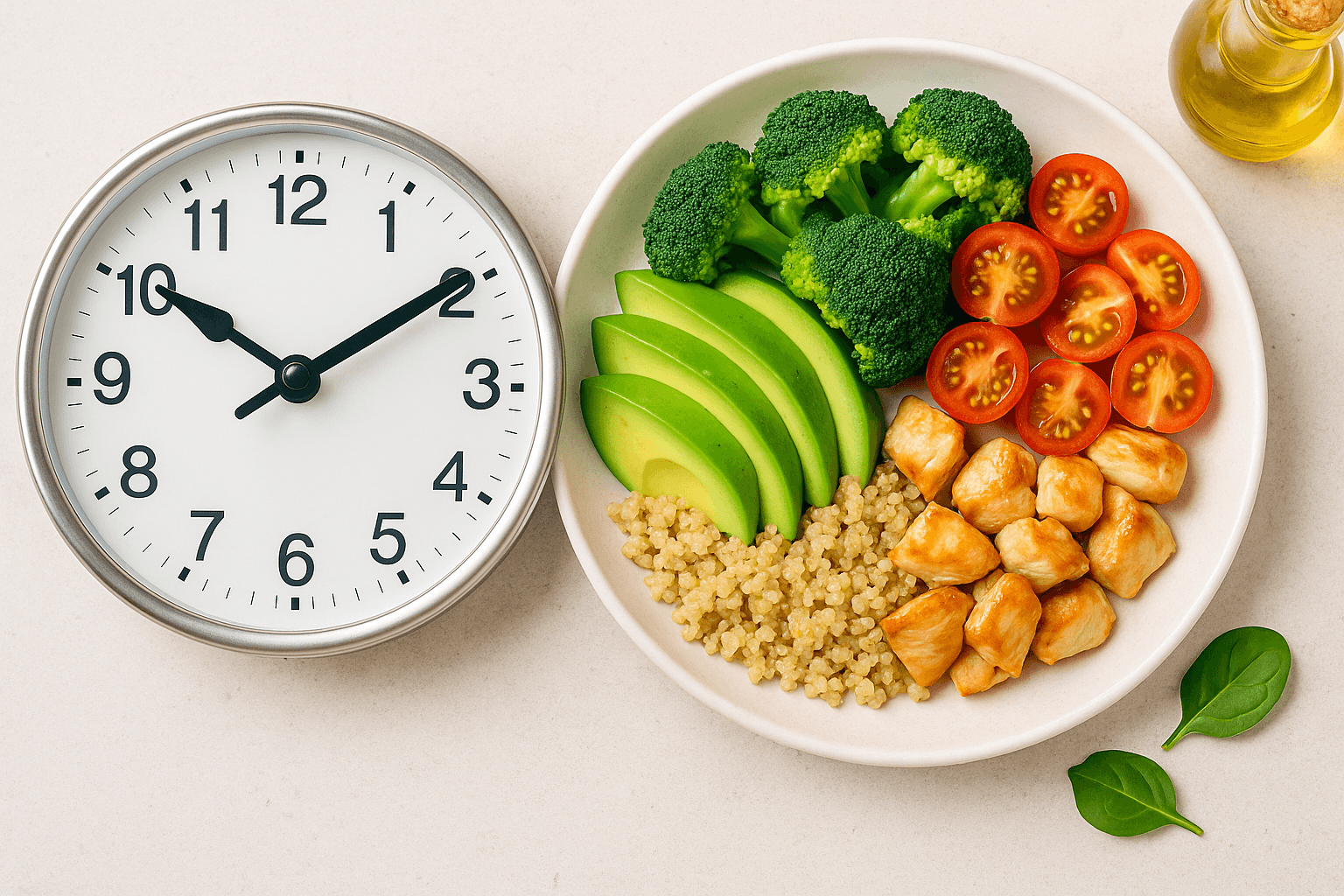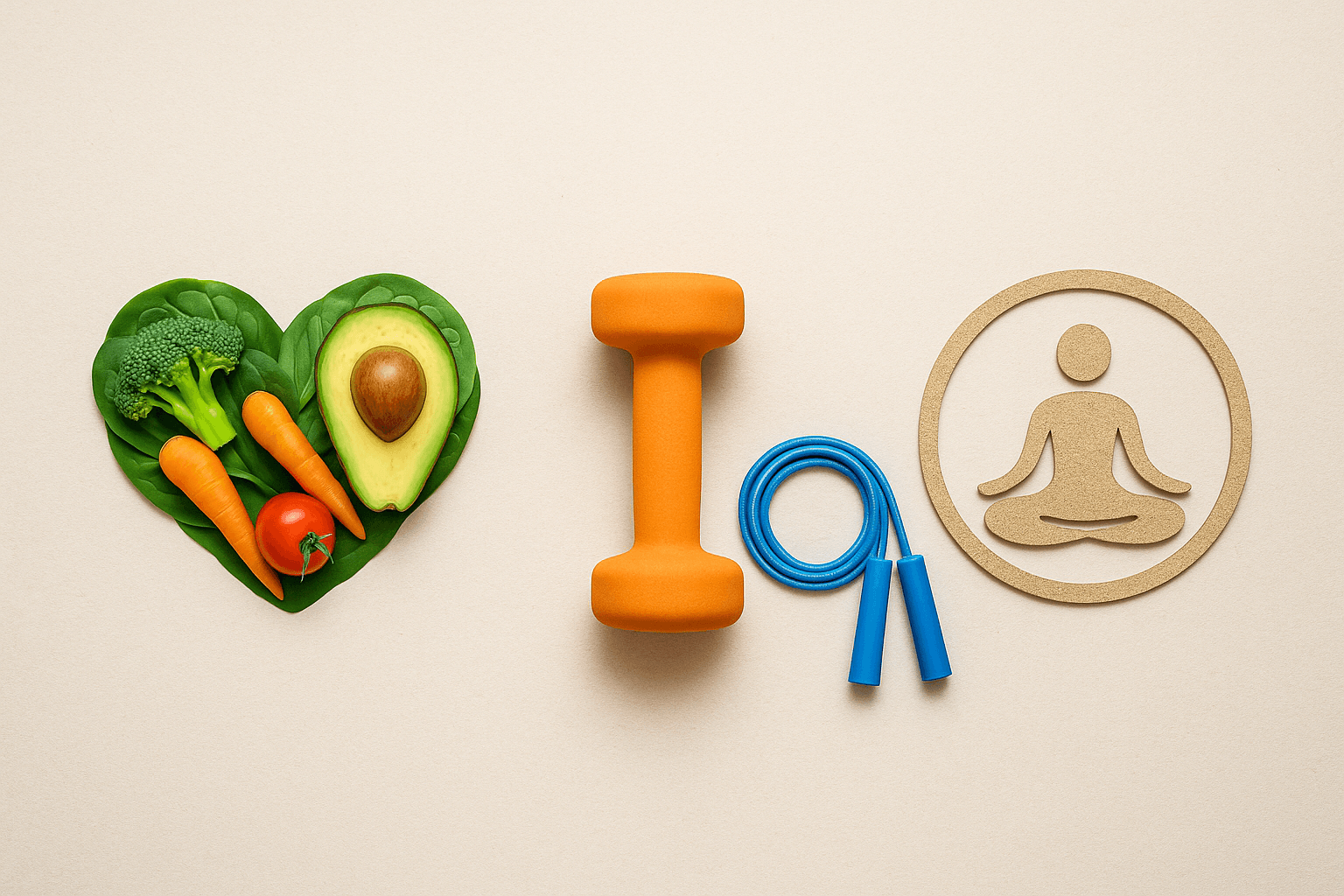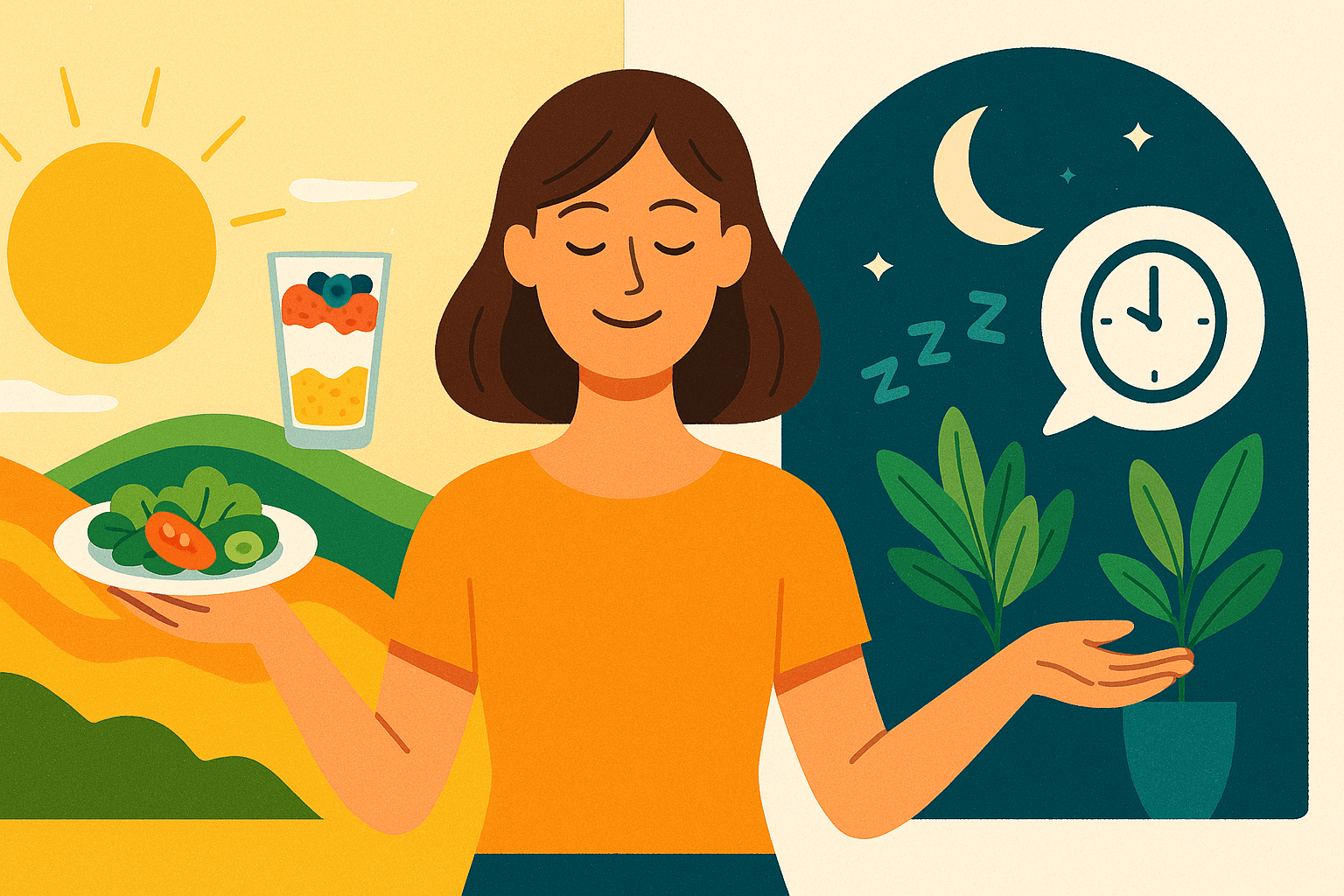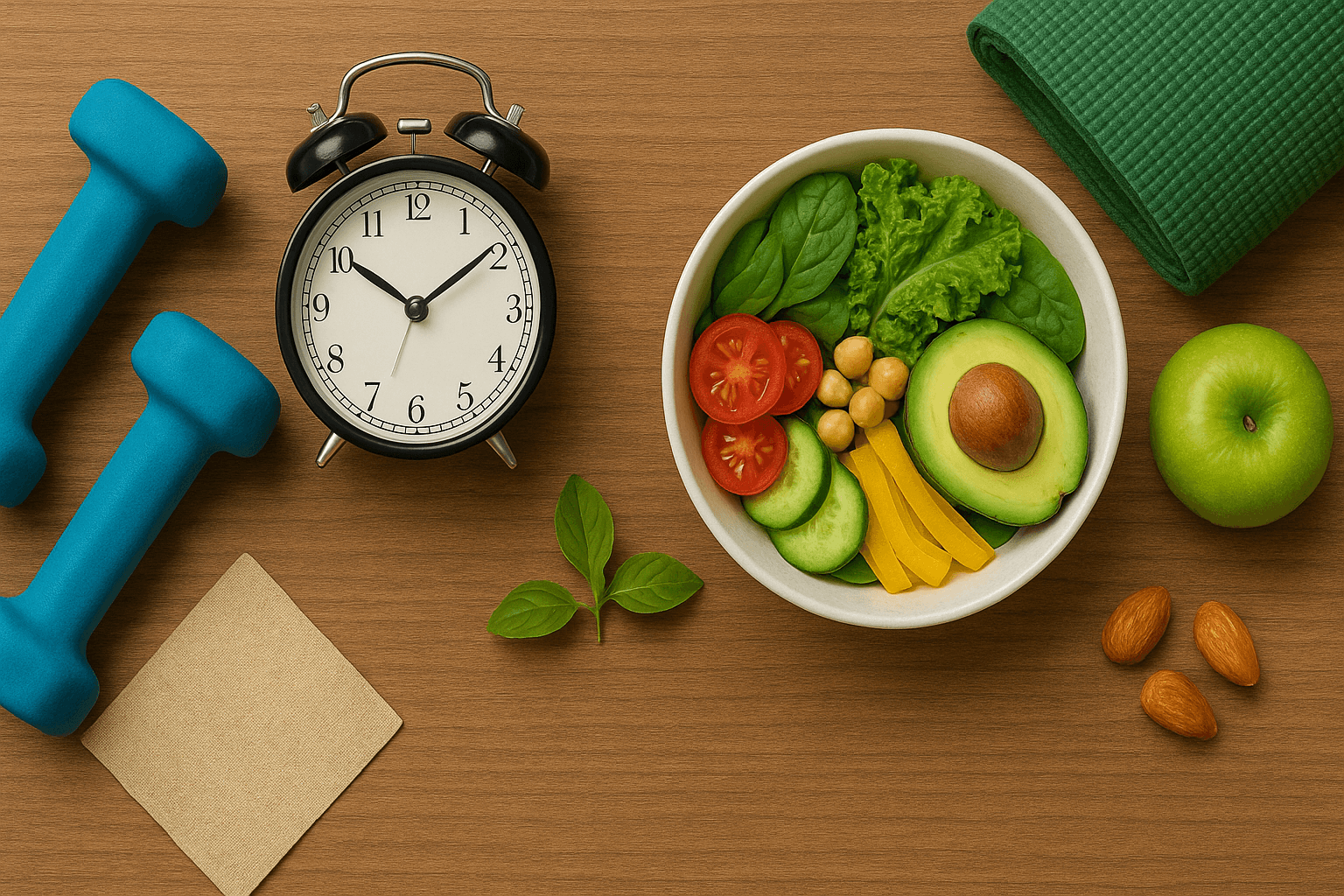Everyday Rituals for a Truly Healthy Life: What Science Says About Living Well (Without Losing Your Mind)
Published on June 11, 2025

Living a healthy life isn’t about extremes. It’s about showing up for yourself consistently — with food, movement, sleep, and mindset that fit your real life. Science shows that small daily rituals lead to sustainable health, resilience, and joy.
Begin With Food: Fuel That Establishes the Base
Food influences mood, metabolism, hormones, and sleep. Healthy eating isn’t perfection — it’s rhythm.
Focus on:
Colorful, whole foods 80% of the time
Meals with protein, fiber, healthy fats, and non-starchy vegetables
Hydration throughout the day
Build your routine:
Eat every 4–5 hours
Start with a protein- and fiber-rich breakfast
Prep basics weekly (roast veggies, cook grains, portion snacks)
Eat slowly. Chew thoroughly. Put your phone down. Intentional eating supports digestion and satisfaction.
Eat with others when possible — it boosts connection and long-term habits.
Exercise Every Day (Yes, Every Day)
Movement isn’t about aesthetics — it’s about blood flow, mental clarity, stress relief, and immune support.
Doable strategies:
30 minutes of daily activity
Blend structured and unstructured movement (walking, stretching, dancing)
Choose activities you enjoy
Even 10 minutes counts
Create movement rituals: walk after meals, stretch in the morning, move every hour.
Track how you feel post-workout — focus, mood, and sleep often improve.
Know the ABCs of Rest and Recovery
Sleep is a biological necessity. It affects glucose, immunity, and mental focus.
Keys to better rest:
Sleep and wake at the same time daily
Avoid screens an hour before bed
Create a relaxing routine (tea, light reading, stretching)
Cool, dark, quiet room
Aim for 7–9 hours of quality sleep.
Limit caffeine after 2 p.m., get morning sunlight, avoid heavy dinners before bed.
Prioritize rest — it’s not lazy, it’s recovery.
Take Control Over Stress Before It Takes Over You
Chronic stress disrupts hormones, sleep, appetite, and gut health.
Effective tools:
Daily breathwork or meditation (even 5 minutes)
Gratitude journaling
Digital boundaries
Nature walks — 15 minutes can reduce cortisol
Talk it out — human connection lowers stress.
Listen to your body — physical symptoms often reflect emotional stress.
Create a Life That Supports Your Routine
Your environment should make healthy choices easy.
Try:
Keep water visible and accessible
Set workout and prep times like appointments
Display fruit instead of snacks
Unfollow toxic social media
Curate uplifting, value-aligned content
Health isn’t willpower — it’s design. Set up your space and systems to serve you.
Surround yourself with people who support your growth.
Ground Your Lifestyle With Purpose and Joy
Discipline follows purpose.
Ask yourself:
Why do I want to feel better?
Who benefits when I’m energized?
What lights me up?
Schedule joy: play, create, connect, laugh.
Add pleasure, not just rules. Rituals that restore — dancing, baking, calling a friend — are part of health too.
Rigid rules fail. Joy sustains.
Final Thoughts
Wellness isn’t a finish line — it’s a rhythm.
Eat nourishing foods
Move daily in joyful ways
Sleep deeply
Breathe through stress
Shape your environment with intention
Connect with your purpose
Health isn’t suffering. It’s strength.
You don’t need a reset. You need a rhythm. Start there.



